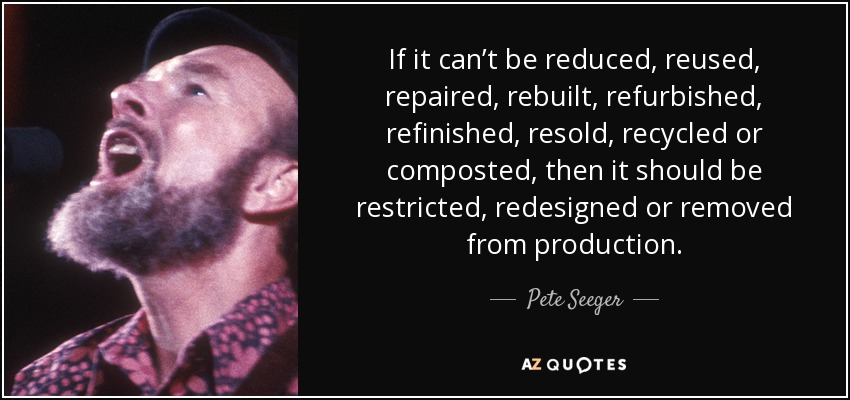Issues with volume, consumption, and shipping to third world countries:
For decades, we were sending the bulk of our recycling to China—tons and tons of it, sent over on ships to be made into goods such as shoes and bags and new plastic products. But in 2018, the country restricted imports of certain recyclables, including mixed paper—magazines, office paper, junk mail—and most plastics. Waste-management companies across the country are telling towns, cities, and counties that there is no longer a market for their recycling. These municipalities have two choices: pay much higher rates to get rid of recycling, or throw it all away.
Most are choosing the latter. “We are doing our best to be environmentally responsible, but we can’t afford it,” said Judie Milner, the city manager of Franklin, New Hampshire. Since 2010, Franklin has offered curbside recycling and encouraged residents to put paper, metal, and plastic in their green bins. When the program launched, Franklin could break even on recycling by selling it for $6 a ton. Now, Milner told me, the transfer station is charging the town $125 a ton to recycle, or $68 a ton to incinerate. One-fifth of Franklin’s residents live below the poverty line, and the city government didn’t want to ask them to pay more to recycle, so all those carefully sorted bottles and cans are being burned. Milner hates knowing that Franklin is releasing toxins into the environment, but there’s not much she can do. “Plastic is just not one of the things we have a market for,” she said.
The same thing is happening across the country. Broadway, Virginia, had a recycling program for 22 years, but recently suspended it after Waste Management told the town that prices would increase by 63 percent, and then stopped offering recycling pickup as a service. “It almost feels illegal, to throw plastic bottles away,” the town manager, Kyle O’Brien, told me.
Without a market for mixed paper, bales of the stuff started to pile up in Blaine County, Idaho; the county eventually stopped collecting it and took the 35 bales it had hoped to recycle to a landfill. The town of Fort Edward, New York, suspended its recycling program in July 2018 and admitted it had actually been taking recycling to an incinerator for months. Determined to hold out until the market turns around, the nonprofit Keep Northern Illinois Beautiful has collected 400,000 tons of plastic. But for now, it is piling the bales behind the facility where it collects plastic.
This end of recycling comes at a time when the United States is creating more waste than ever. In 2015, America generated 262.4 million tons of waste, up 4.5 percent from 2010 and 60 percent from 1985. That amounts to nearly five pounds per person a day. New York City collected 934 tons of metal, plastic, and glass a day from residents in. 2018, a 33 percent increase from 2013.


